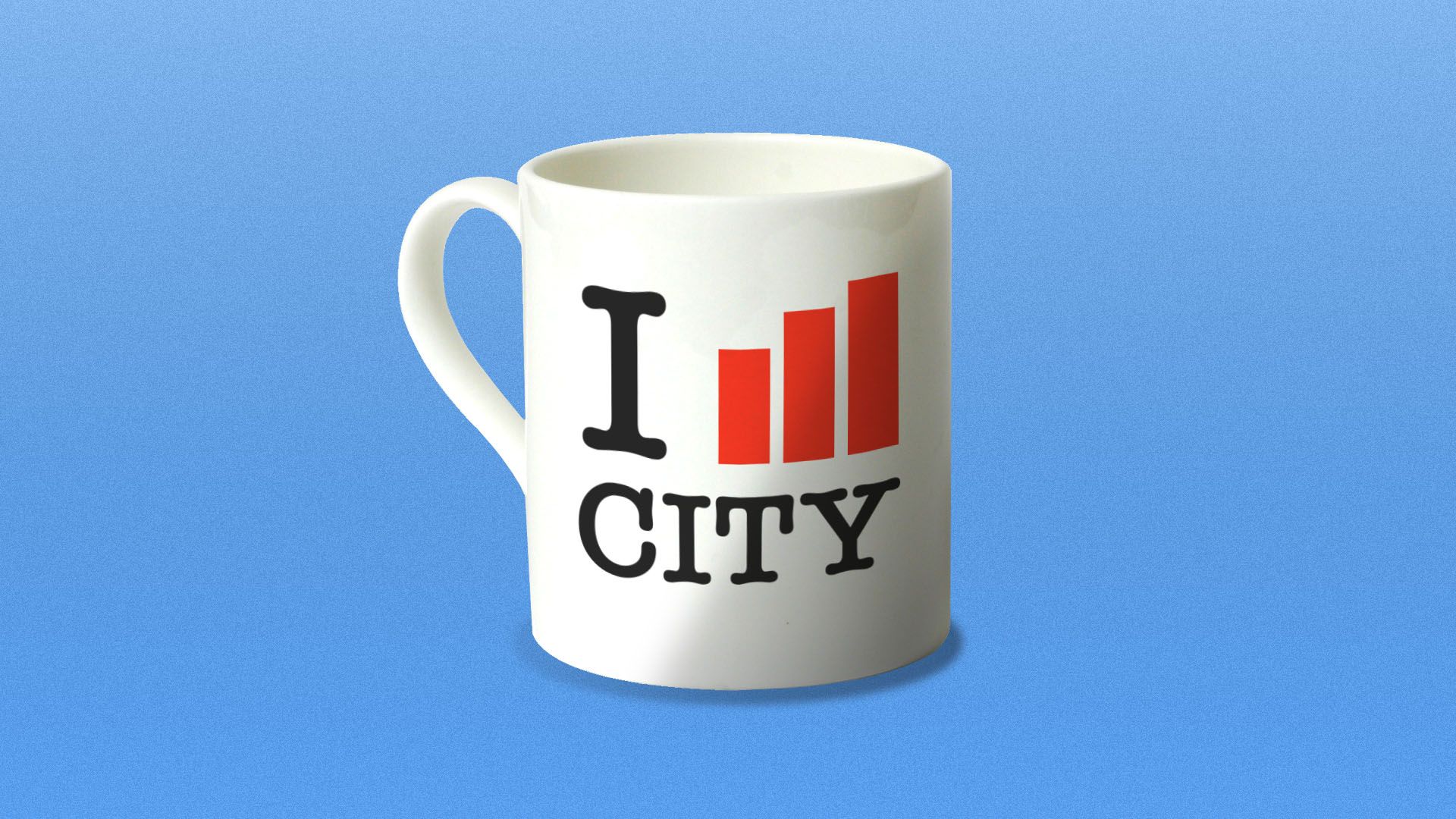The rise of the C-suite in city halls
Add Axios as your preferred source to
see more of our stories on Google.

Illustration: Sarah Grillo/Axios
From Oakland to Chattanooga tech-focused C-suite roles are rising in popularity among city halls.
Why it matters: As the private sector raises expectations for fast and reliable services, the public sector is working to adapt, adding roles like chief technology officer, chief information officer, chief data officer, and chief analytics officer.
The big picture: Data is of growing significance to local administrators as they balance needs for transparency and interoperable systems with privacy and ethical concerns.
What's happening: The relatively new roles are carving out different niches from city to city.
- New York City CAO Kelly Jin has integrated data across agencies and developed a data-driven plan to address city issues, including identifying bad landlords.
- Miami CIO Mike Sarasti has built feedback opportunities for residents into the design of an online platform for more than 200 city services.
- Detroit has a director of innovation and emerging technology, Kat Hartman, who uses data storytelling to standardize addresses and land parcels.
Between the lines: There is overlap across titles in different cities. For example, some CIO roles closely resemble other CTO roles.
- CTO roles, for instance, can cover infrastructure managers, innovation gurus, operations visionaries, community-facing technologists, or some combination of the four. At their core, CTOs are often tech experts, steering the adoption of the latest advances.
- CDOs, as another example, are data experts working to ensure effective use of data inside and outside city walls for public good.
But, but, but: Implementing best practices from the private sector, like prioritizing customer service, involves more than adding another name to an org chart.
- And innovation can't be limited to the "there’s-an-app-for-that" mentality.
The bottom line: These roles, in the most effective cases, help to recast government as a modern service provider that is responsive and anticipates what matters to residents.
Hollie Russon Gilman is a fellow at New America's Political Reform Program, Georgetown's Beeck Center for Social Impact & Innovation, and Columbia's School of International and Public Affairs.
